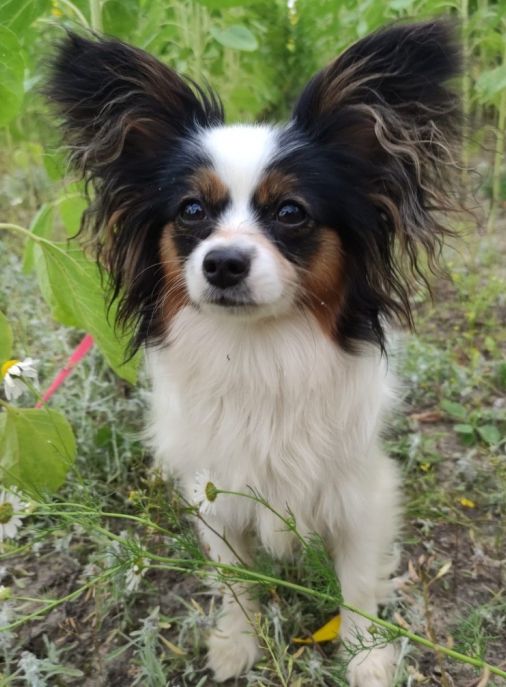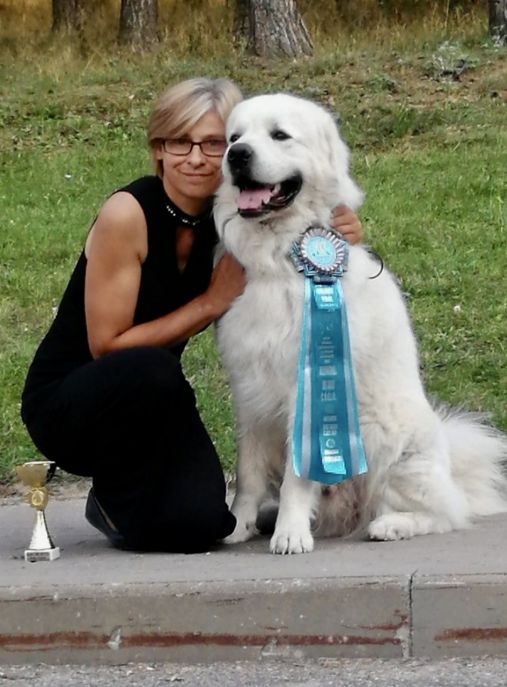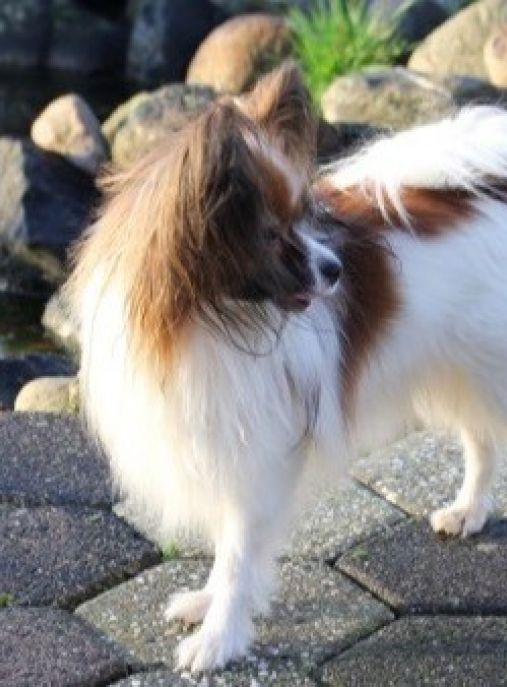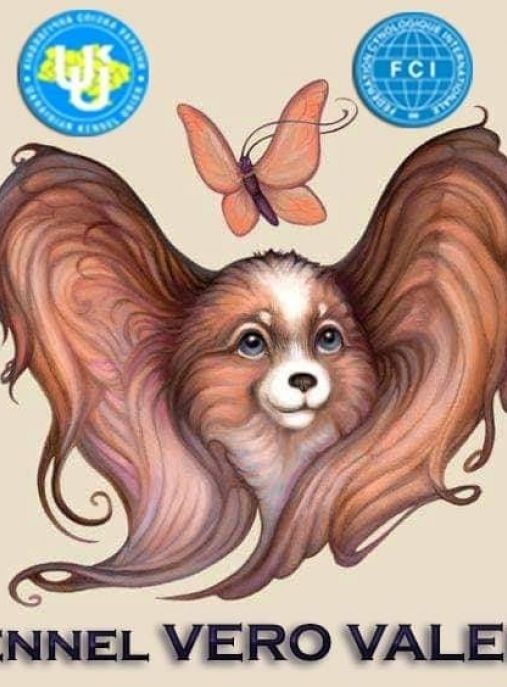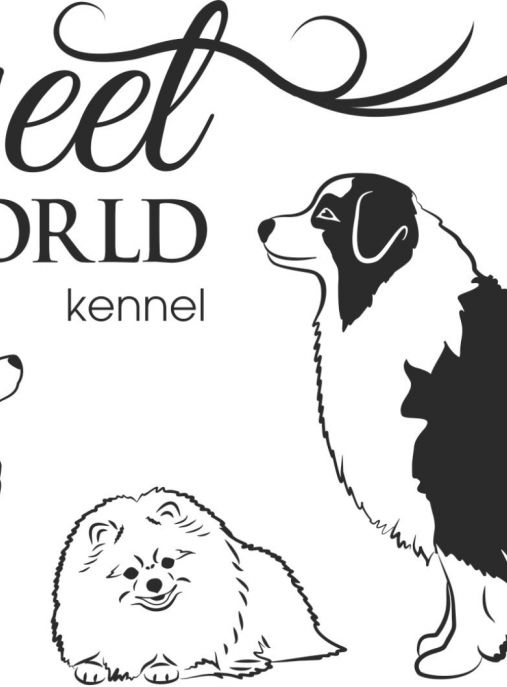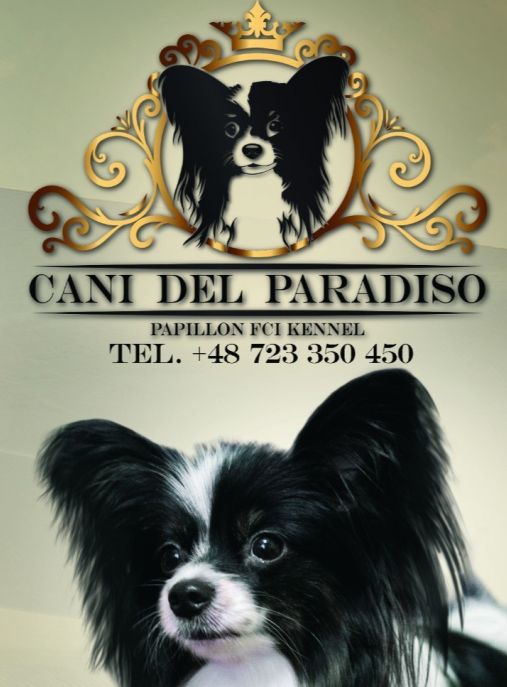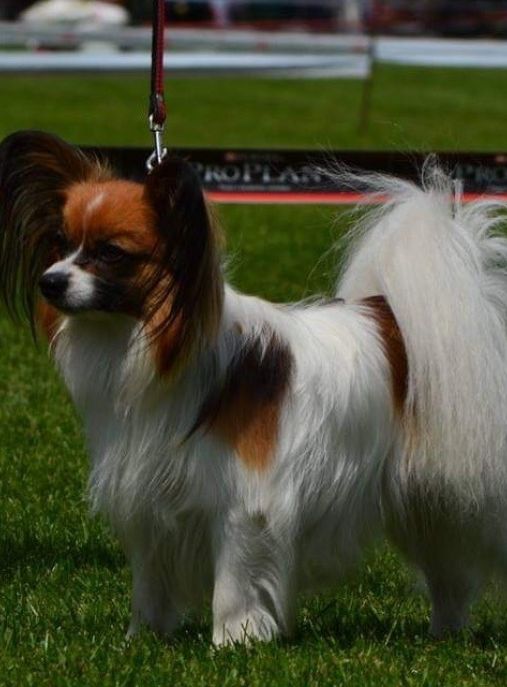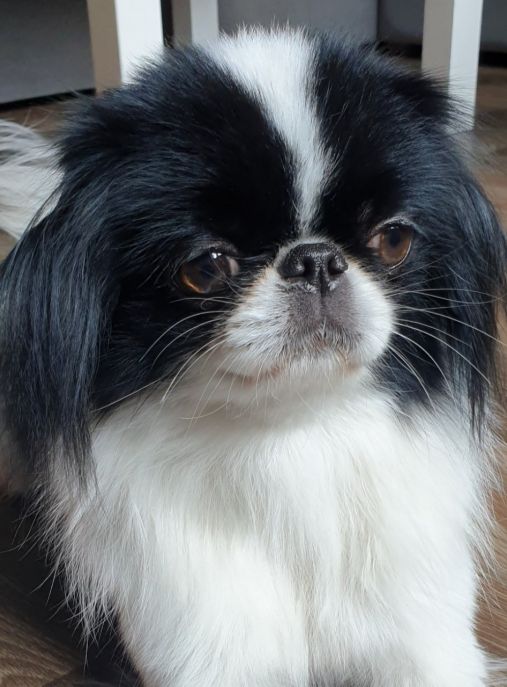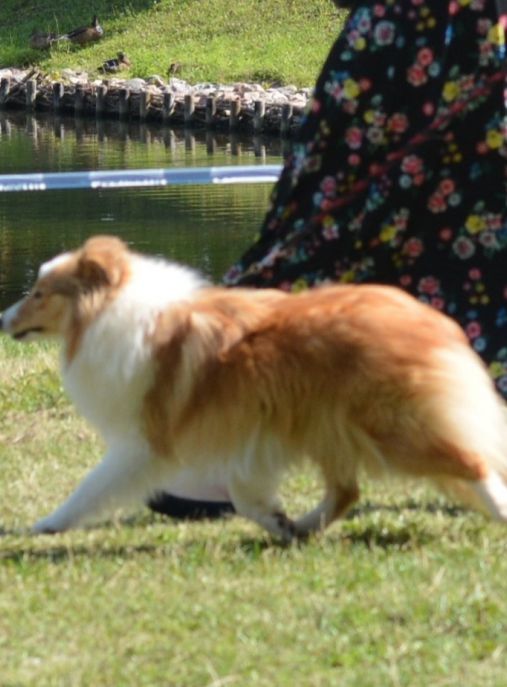The Continental Toy Spaniel - Papillon, also known simply as the Papillon, is a small and elegant dog breed that is known for its distinctive butterfly-like ears. This breed is highly regarded for its intelligence, agility, and friendly nature, making it a popular choice among dog enthusiasts worldwide. With its charming appearance and lively personality, the Papillon has become a beloved companion and show dog.
The history of the Papillon can be traced back several centuries, with its origins believed to be in France and Belgium. The breed's name, Papillon, is derived from the French word for butterfly, which perfectly describes its unique ear shape. The Papillon is closely related to the Phalène, a variety of the breed with drooping ears, which is also recognized by kennel clubs.
According to the FCI (Fédération Cynologique Internationale) typology, the Papillon belongs to Group 9 - Companion and Toy Dogs, Section 9 - Continental Toy Spaniel and Russian Toy. This classification highlights the breed's small size and its historical role as a companion dog.
Papillons are known for their friendly and outgoing nature, making them excellent family pets. They are highly adaptable and can thrive in various living situations, including apartments, as long as they receive regular exercise and mental stimulation. Their intelligence and trainability make them suitable for various dog sports and activities, such as obedience, agility, and even therapy work.
In terms of physical characteristics, the Papillon is a small dog with a well-balanced body. The average weight of a Papillon ranges from 4 to 9 pounds (1.8 to 4 kg), with males typically being slightly larger than females. They stand at a height of around 8 to 11 inches (20 to 28 cm) at the shoulder. Despite their small size, Papillons are known for their sturdy and athletic build.
One of the most distinctive features of the Papillon is its large, butterfly-like ears. These ears are set high on the head and are carried erect, giving the breed a unique and elegant appearance. The Papillon's coat is long and silky, with a fringed appearance on the ears, chest, and tail. The coat comes in a variety of colors, including white, black, brown, and red, often with patches or markings.
The average lifespan of a Papillon is around 12 to 16 years, which is relatively long for a small breed. However, like all dogs, they require proper care, including regular veterinary check-ups, a balanced diet, and regular exercise to maintain their overall health and well-being.
Despite their small size, Papillons are known for their energetic and playful nature. They enjoy engaging in activities with their owners, such as playing fetch, going for walks, or participating in training sessions. They are also known for their alertness and make excellent watchdogs, often barking to alert their owners of any potential threats or strangers.
In addition to their physical attributes and temperament, Papillons have a few interesting facts associated with them. They have been depicted in various works of art throughout history, including paintings by famous artists such as Rubens and Watteau. Additionally, Papillons have been owned by several notable figures, including Marie Antoinette, who was said to have carried her beloved Papillon in her pocket.
In conclusion, the Continental Toy Spaniel - Papillon is a delightful and elegant dog breed that has captured the hearts of many dog lovers. With their distinctive butterfly-like ears, friendly nature, and intelligence, they make excellent companions and show dogs. Whether as a family pet or a competitive athlete, the Papillon brings joy and charm to any household.
The Continental Toy Spaniel, also known as the Papillon, is a small and elegant breed that is known for its distinctive butterfly-like ears. These dogs are not only visually appealing but also possess a charming and lively character that makes them a popular choice among dog enthusiasts. With their friendly and outgoing nature, Papillons make excellent companions and are well-suited for families and individuals alike.
One of the most notable traits of Papillons is their intelligence. These dogs are highly trainable and eager to please their owners. They excel in obedience training and can quickly learn a wide range of commands and tricks. However, it is important to note that they can be sensitive to harsh training methods. Positive reinforcement techniques, such as rewards and praise, work best with this breed.
In terms of behavior, Papillons are known for their lively and active nature. They are always on the go and love to explore their surroundings. Regular exercise is essential to keep them mentally and physically stimulated. Daily walks, playtime, and interactive toys are great ways to meet their exercise needs. Despite their small size, Papillons have a surprising amount of energy and can keep up with more active lifestyles.
Papillons are also known for their friendly and sociable nature. They are generally good with children and get along well with other pets when properly socialized from a young age. However, due to their small size, it is important to supervise interactions with larger dogs to prevent any accidental injuries. Papillons thrive on human companionship and can become anxious or develop separation anxiety if left alone for long periods. They are happiest when they are included in family activities and given plenty of attention.
When it comes to grooming, Papillons have a long, silky coat that requires regular maintenance. Weekly brushing is necessary to prevent matting and keep their coat looking its best. They are considered a low-shedding breed, making them a good choice for individuals with allergies. Additionally, regular dental care is important to maintain their oral health.
To raise a well-behaved Papillon, early socialization and consistent training are key. Expose them to various environments, people, and animals from a young age to help them develop into confident and well-rounded dogs. Papillons are known for their alertness and make excellent watchdogs, but they can also be prone to excessive barking if not properly trained. Teaching them appropriate barking behavior and providing mental stimulation can help curb this tendency.
In conclusion, the Continental Toy Spaniel - Papillon is a delightful breed with a charming character. They are intelligent, friendly, and active dogs that thrive on human companionship. With proper training, socialization, and care, Papillons can make wonderful pets for individuals and families alike. Their small size and low-shedding coat make them suitable for various living situations, and their lively and affectionate nature will bring joy and companionship to their owners for many years to come.
The Continental Toy Spaniel, commonly known as the Papillon, is a small and elegant breed that requires specific care to ensure their health and happiness. Here are some tips on how to properly care for Papillon dogs, including what to do and what not to do:
1. Grooming: Papillons have long, silky coats that require regular grooming to prevent matting and tangling. Brush their fur at least two to three times a week to keep it clean and free from debris. Pay special attention to their feathered ears, as they are prone to collecting dirt and wax. Regularly check their ears for any signs of infection and clean them gently using a veterinarian-approved ear cleaner.
2. Exercise: Despite their small size, Papillons are energetic dogs that require regular exercise to keep them physically and mentally stimulated. Take them for daily walks or engage in play sessions to burn off their energy. They also enjoy participating in dog sports like agility and obedience training, which can help keep them active and entertained.
3. Training and socialization: Papillons are intelligent and eager to please, making them relatively easy to train. Start their training early and use positive reinforcement techniques such as treats and praise. Socialize them from a young age by exposing them to different people, animals, and environments. This will help them develop into well-rounded and confident dogs.
4. Dental care: Papillons are prone to dental issues, so it's crucial to establish a regular dental care routine. Brush their teeth at least two to three times a week using a dog-specific toothbrush and toothpaste. Additionally, provide them with dental chews or toys that promote good oral hygiene and help reduce tartar buildup.
5. Nutrition: Feed your Papillon a high-quality, balanced diet that meets their specific nutritional needs. Consult with your veterinarian to determine the appropriate portion sizes and feeding schedule based on their age, weight, and activity level. Avoid overfeeding, as Papillons can easily gain weight, which can lead to health problems.
6. Health care: Regular veterinary check-ups are essential to ensure your Papillon's overall health. Vaccinations, parasite prevention, and annual examinations are crucial to detect any potential health issues early on. Additionally, be aware of common health problems in the breed, such as patellar luxation and dental issues, and discuss preventive measures with your veterinarian.
What not to do:
1. Do not leave your Papillon alone for extended periods. They thrive on companionship and can develop separation anxiety if left alone for too long.
2. Avoid exposing your Papillon to extreme temperatures. They are sensitive to both hot and cold weather, so provide them with appropriate shelter and avoid prolonged exposure to extreme temperatures.
3. Do not neglect their mental stimulation. Papillons are intelligent dogs that require mental exercise. Engage them in interactive games, puzzle toys, and training sessions to keep their minds sharp.
4. Avoid using harsh training methods or punishment. Papillons respond best to positive reinforcement techniques, so be patient, consistent, and reward their good behavior.
5. Do not ignore their dental care. Neglecting dental hygiene can lead to serious dental issues, so make sure to prioritize regular brushing and provide appropriate dental care products.
Remember, each Papillon is unique, and their care may vary based on their individual needs. Always consult with your veterinarian for personalized advice and guidance to ensure the best care for your beloved Continental Toy Spaniel - Papillon.
The Continental Toy Spaniel, also known as the Papillon, is a small and elegant breed of dog that is known for its distinctive butterfly-like ears. When it comes to their coat color, Papillons exhibit a wide range of possibilities, each with its own unique charm.
One of the most common colors seen in Papillons is white. A Papillon with a predominantly white coat is truly a sight to behold. The purity and brightness of the white fur create a striking contrast against the dog's dark, expressive eyes and black nose. This coloration gives the Papillon a regal and sophisticated appearance, making them stand out in any crowd.
In addition to white, Papillons often display splashes of other colors on their coat. One popular variation is the black and white combination. This color pattern typically features a predominantly white coat with patches of black scattered throughout. The black patches can vary in size and shape, creating a unique and eye-catching pattern on the dog's body. The contrast between the black and white creates a visually stunning effect, enhancing the Papillon's overall elegance.
Another common color seen in Papillons is sable. Sable Papillons have a base coat that ranges from light to dark brown, with individual hairs displaying a gradient effect. This creates a beautiful and natural-looking blend of colors that adds depth and dimension to the dog's coat. The sable coloration is often accompanied by white markings on the chest, paws, and face, further enhancing the Papillon's overall appearance.
Papillons can also come in shades of red and fawn. These colors range from a light, almost apricot hue to a deeper, reddish-brown tone. The red and fawn Papillons often have a white blaze on their face, which adds a touch of elegance to their overall appearance. The richness of these colors gives the Papillon a warm and inviting look, making them even more irresistible.
In addition to these common colors, Papillons can also exhibit more unique and rare color variations. Some Papillons may have a tricolor coat, which combines black, white, and tan markings. Others may have a parti-color coat, which features patches of two or more colors, such as black and white or red and white. These less common colorations make each Papillon truly one-of-a-kind, showcasing their individuality and charm.
Overall, the common color of Continental Toy Spaniel - Papillon dogs can vary greatly, ranging from pure white to black and white, sable, red, fawn, and even more unique combinations. Regardless of the specific color, Papillons are undeniably beautiful dogs with a coat that adds to their overall elegance and grace.
The Continental Toy Spaniel, commonly known as the Papillon, is a small and elegant breed known for its distinctive butterfly-like ears. These dogs are generally healthy and have a lifespan of around 12 to 16 years. However, like all dog breeds, they are prone to certain health issues that owners should be aware of to ensure their pet's well-being.
One of the most common health problems in Papillons is patellar luxation. This condition occurs when the kneecap slips out of place, causing discomfort and lameness. Regular exercise and maintaining a healthy weight can help prevent this condition. Additionally, regular veterinary check-ups are essential to detect any signs of patellar luxation early on.
Another health concern in Papillons is dental disease. Due to their small size, these dogs are prone to dental issues such as tooth decay, gum disease, and tartar buildup. Regular brushing of their teeth, feeding them a balanced diet, and providing dental chews or toys can help maintain their oral health.
Papillons are also susceptible to progressive retinal atrophy (PRA), a degenerative eye disease that can lead to blindness. Regular eye examinations by a veterinary ophthalmologist can help detect PRA early, allowing for appropriate management and treatment options.
Heart murmurs are another common health issue in this breed. Regular cardiac evaluations, including auscultation and echocardiography, can help identify any heart abnormalities. Early detection is crucial for managing heart conditions and ensuring the dog's overall health.
Additionally, Papillons may be prone to allergies, which can manifest as skin irritations, itching, and ear infections. Maintaining good hygiene, regular grooming, and providing a balanced diet can help minimize the risk of allergies. If allergies are suspected, it is important to consult with a veterinarian to determine the cause and develop an appropriate treatment plan.
To care for the health of a Papillon, regular exercise is essential. Despite their small size, these dogs are energetic and require daily walks or playtime to keep them mentally and physically stimulated. However, it is important to avoid excessive exercise or activities that could strain their delicate bones and joints.
Proper nutrition is also crucial for maintaining the health of a Papillon. Feeding them a high-quality, balanced diet that meets their specific nutritional needs is essential. Consult with a veterinarian to determine the appropriate portion sizes and feeding schedule for your dog.
Regular grooming is necessary to keep the Papillon's coat healthy and free from mats. Their long, silky hair requires brushing at least a few times a week to prevent tangles and matting. Additionally, regular nail trims, ear cleaning, and dental care should be part of their grooming routine.
Lastly, regular veterinary check-ups are vital for monitoring the overall health of a Papillon. Vaccinations, parasite prevention, and routine examinations can help detect any health issues early on and ensure appropriate treatment.
In conclusion, while the Continental Toy Spaniel - Papillon dogs are generally healthy, they are prone to certain health conditions such as patellar luxation, dental disease, progressive retinal atrophy, heart murmurs, and allergies. By providing proper care, including regular exercise, a balanced diet, grooming, and veterinary check-ups, owners can help ensure the health and well-being of their beloved Papillon.
The Continental Toy Spaniel, commonly known as the Papillon, is a small and elegant breed of dog known for its distinctive butterfly-like ears. As with any dog, proper nutrition plays a vital role in maintaining their overall health and well-being. In this text, we will provide an extensive description of the nutrition requirements for Papillon dogs, along with advice on feeding and what to avoid.
Papillons are generally active and energetic dogs, despite their small size. They require a well-balanced diet that provides them with the necessary nutrients to support their energy levels and maintain a healthy weight. A high-quality commercial dog food specifically formulated for small breeds is an excellent choice for meeting their nutritional needs. Look for a brand that lists real meat as the primary ingredient and avoids fillers, artificial additives, and by-products.
Protein is an essential component of a Papillon's diet, as it helps build and repair tissues, supports a healthy immune system, and provides energy. Look for a dog food that contains a minimum of 25% protein, preferably from animal sources like chicken, turkey, or fish. Fat is another crucial nutrient for Papillons, providing them with energy and aiding in the absorption of fat-soluble vitamins. Ensure that the dog food contains a moderate amount of healthy fats, such as omega-3 and omega-6 fatty acids.
Carbohydrates are a source of energy for dogs, but it's important to choose complex carbohydrates that are easily digestible. Ingredients like brown rice, sweet potatoes, and whole grains are excellent choices. Fiber is also essential for maintaining a healthy digestive system, so look for a dog food that contains a moderate amount of fiber, typically around 3-5%.
Feeding guidelines for Papillons can vary depending on their age, weight, and activity level. It's best to consult with your veterinarian to determine the appropriate portion sizes and feeding frequency for your specific dog. Generally, adult Papillons should be fed twice a day, while puppies may require more frequent meals.
In addition to a balanced diet, it's crucial to provide your Papillon with fresh water at all times. Hydration is essential for their overall health and helps maintain proper organ function. Ensure that the water bowl is clean and filled regularly.
While it's important to focus on what to include in a Papillon's diet, it's equally important to be aware of what to avoid. Certain foods can be toxic or harmful to dogs and should never be fed to Papillons. Some common foods to avoid include chocolate, caffeine, grapes, raisins, onions, garlic, alcohol, and anything containing xylitol, an artificial sweetener. These foods can cause severe health issues, including kidney damage, liver failure, and even death.
Additionally, it's essential to avoid overfeeding your Papillon, as they are prone to weight gain. Obesity can lead to various health problems, including joint issues, heart disease, and diabetes. Monitor your dog's weight and body condition regularly, and adjust their portion sizes accordingly.
In conclusion, providing a well-balanced and nutritious diet is crucial for the health and well-being of Continental Toy Spaniel - Papillon dogs. Choose a high-quality commercial dog food formulated for small breeds, focusing on real meat as the primary ingredient. Consult with your veterinarian to determine the appropriate portion sizes and feeding frequency. Avoid feeding toxic foods and be mindful of your dog's weight to prevent obesity. By following these guidelines, you can ensure that your Papillon receives the nutrition they need to thrive.

